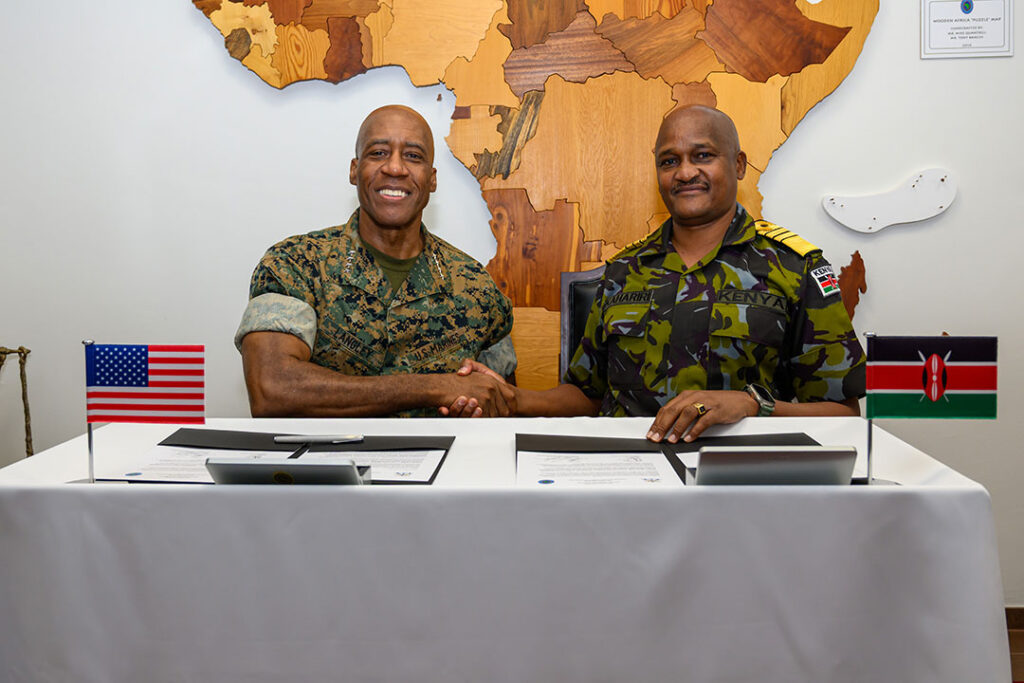After extensive discussion during the African Chiefs of Defense Conference in Nairobi in May strengthening security partnerships and facing shared threats, Kenya and its co-host, the United States Africa Command, have set about putting words into action.
Kenya Defence Force chief Gen. Charles M. Kahariri and then-commander of AFRICOM Gen. Michael Langley issued a joint statement at AFRICOM headquarters in Stuttgart, Germany, on August 14, calling on African countries to coordinate efforts.
“We can revitalize multilateralism, working to overcome increasing distrust amongst member states, geopolitical tensions and the risk of group indecision,” the statement read. “No one country can address terrorism, pandemic prevention and the handling of humanitarian crises on its own. These shared threats demand shared responses.”
The Kenyan armed forces, AFRICOM and partner countries aim to advance peace, stability and security across the continent by promoting regional cooperation and collaborating with civil society, the private sector, academia and community leaders.
Other priorities outlined in the joint statement:
- Capitalize on innovation: Leverage technology to counter new tactics from terrorist groups as well as cyberattacks and other disruptive tactics by emerging threat actors. “Encouraging creativity and experimentation with technology within your ranks including innovation cells and mechanisms to reward those breakthroughs will be key,” the statement said.
- Strengthen defense institutions: Train forces, improve multiagency operations and reinforce civil-military relations.
- Promote African leadership: Secure the continent by advancing African-led, whole-of-society approaches with targeted partner support.
The safety of Africans across the continent demands a unified approach, Kahariri said, agreeing with Kenyan President William Ruto when he addressed conference participants in May.
“True security in Africa must be continental in ambition and collaborative in execution,” Ruto said in a speech to open the conference.
The joint statement, Kahariri said, “focuses our collective energy. It identifies where we must act and where we can lead together.”
For Langley, the meeting with Kahariri was among his final duties, as he transferred command of AFRICOM to Air Force Gen. Dagvin Anderson the next day before retiring at Marine Barracks in Washington, D.C. on August 19.
Langley, who served the U.S. for more than four decades, focused much of his efforts as head of AFRICOM on expanding partnerships and operational readiness. The joint statement with Kahariri reinforced the same shared priorities agreed upon by 38 African delegations during the conference in Nairobi.
The joint statement signals the start of a coordinated effort to turn dialogue into concrete steps ahead of the next conference, where chiefs of defense from all 54 African nations are slated meet in Abuja, Nigeria, in August 2026.
“This is more than a record of what was discussed,” Langley said. “It is a shared commitment to move forward together, build on progress and deliver results that strengthen security across Africa.”

